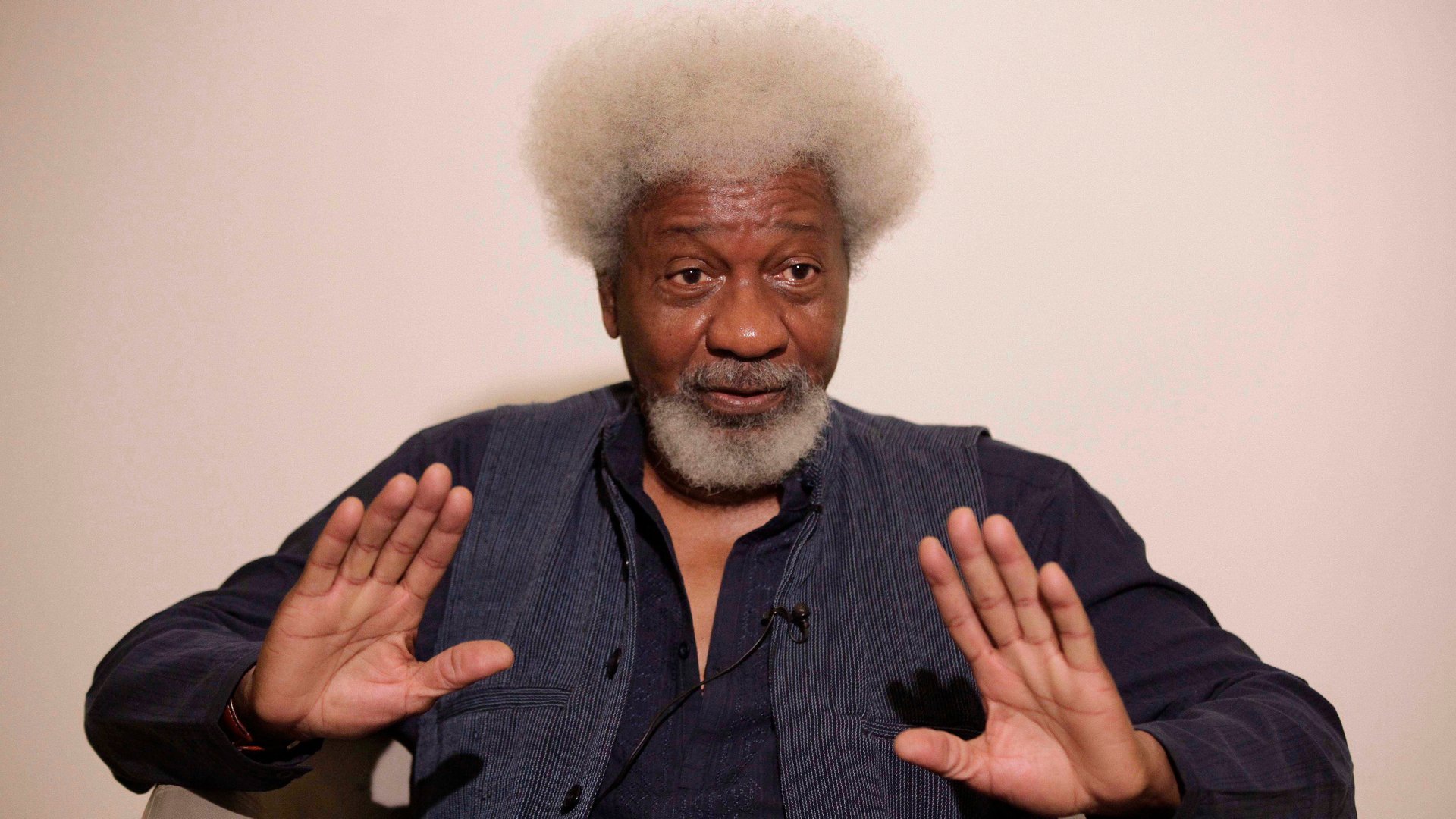After cutting up his US green card, Wole Soyinka is moving to South Africa to “Africanize knowledge”
Refusing to live in Donald Trump’s America, esteemed Nigerian writer and Nobel laureate Wole Soyinka is relocating to South Africa. He will join the University of Johannesburg as Distinguished Visiting Professor.


Refusing to live in Donald Trump’s America, esteemed Nigerian writer and Nobel laureate Wole Soyinka is relocating to South Africa. He will join the University of Johannesburg as Distinguished Visiting Professor.
Soyinka is one of Africa’s most acclaimed voices, and the university hopes he will guide the fraught national debate on “the decolonization and the Africanization of knowledge” in South Africa’s Eurocentric higher education system.
“Prof Soyinka, a high profile academic and social influencer whose work, sentiments, and political positionality is taken very seriously in Africa, and across the world will bring a new dimension to this discourse,” said Alex Broadbent, head of the faculty of humanities. Late last year, Soyinka delivered a public lecture at UJ, outlining his vision for education in Africa.
Soyinka’s plays, poems and novels have been the narratives of post-colonial Africa for several generations. Soyinka, 83, spent the last 20 years living in the United States. He was a scholar-in-residence at New York University’s Institute of African American Affairs when Trump won the 2016 presidential election, which Soyinka described as “a horror.”
Unable to reconcile with the political direction the United States took, Soyinka cut up his green card and packed up his belongings. He now makes his way to South Africa, a country also struggling with its treatment of foreigners, especially Africans.
UJ itself is a university struggling with its identity. The university was established at the height of apartheid as the Rand Afrikaans University. From its curriculum to its laager-like architecture, the university was meant to be the urban academic home of white Afrikaans-speaking South Africans.
In 2005, it was renamed and merged with the black-only universities in Soweto and the outskirts of Johannesburg. The university has worked hard to re-establish its brand, but has struggled to attract the prestige of universities that escaped the post-apartheid merger process. With Soyinka, UJ has a chance to cement its identity as a contemporary African university, which would be the final stage of its evolution.
There’s no guarantee South Africa’s student movement will accept Soyinka’s views though, given the recent experience of another venerated African storyteller Ngũgĩ wa Thiong’o.